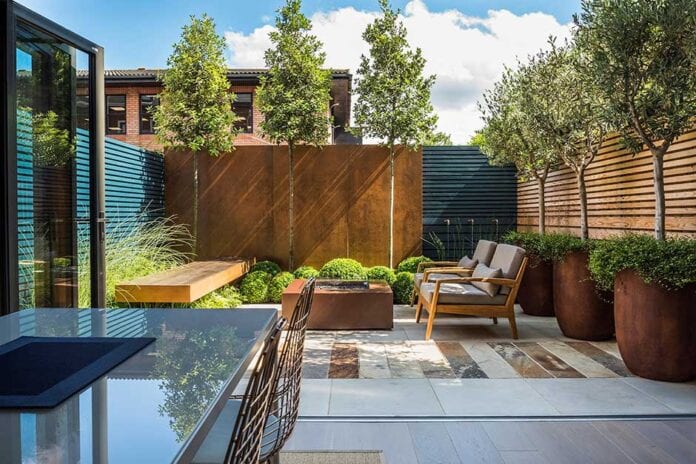If you’ve recently moved into a new-build home, you’ll have a garden that is a completely blank canvas for you to create your idyllic outdoor space. With spring finally here and with many people still based at home for the next little while, it’s the perfect time to start!
You may already have newly laid lawn or some paving and have started to think about the type of plants or trees you would like for your dream garden. But there’s also plenty of other issues to consider.
Giles Wilson, Standards and Policy Manager, at NHBC, the UK’s leading warranty and insurance provider for new homes explains: “We know that despite the continued impact of the pandemic, confidence in the housing market, particularly for newly-built homes, has remained strong. With many people deciding now is the time for a new home and in a lot of cases relocating to somewhere more rural, it’s wise to think about the small steps that could make a big difference to your outside area if you are planning on, or have just moved.”
Read on for some practical tips to help you make the most of your new garden at your new home:
- With remote working now more common-place, most of us are all looking for ways to get some much-needed peace and quiet – or a change of scene – when working from home. A garden office provides a dedicated space to concentrate on work in a productive and inspiring setting, while also providing outdoor space for family and friends, so take extra care examining garden / outdoor dimensions and sightlines.
- In clay soil, plant trees well away from your home. Find out how tall the mature tree will be and make sure it is positioned at least three quarters of this distance from the house.
- The level of soil around your home should be kept below the damp proof course (generally 150mm or two brick courses). Paths should also generally be kept around 150mm or two brick courses below the damp proof course, except where these have been designed to provide level access into the home. If you are not sure where the damp proof course is, ask your builder to show you. Where air bricks, permanent ventilators or perpend vents are provided, they should not be blocked or covered by soil or paving.
- If you’re planning to grow your own fruit – a favourite lockdown pastime of course, order your fruit trees as soon as you can to plant before summer, and continue planting trees and shrubs while they are still dormant.
- High water demand trees should be planted no closer to the home than one-and-a-quarter times the mature height. High water demand trees include elm, eucalyptus, oak, poplar, willow and some common cypress species.
- Avoid planting climbers such as Ivy and Virginia Creeper against house walls, as they hold on using suckers, twining tendrils or aerial roots which could damage mortar and may cause damp. Plant these at least three metres away from your home.
- Allow enough room for trunks and large roots to grow safely. Be particularly careful if planting near drains or lightweight structures.
- Although you do not need to, when planting new trees in your garden that will also be near you neighbour’s house, be considerate and ask your neighbour if this is ok. As you could be liable for the cost of repair if the trees you plant cause damage to their home.
- Regular pruning of fast growing, thirsty trees such as Cypress Leyland, will help to reduce the amount of water taken from the soil.
- Inspection chambers and rodding eyes are there to provide access the drainage system below ground so that blockages can be cleared. It’s important these are not covered by soil, turf or paving. Ask your builder for further information regarding this.
- And last of all, although the UK is fortunate to have plenty of rain, do ensure trees and shrubs are watered sufficiently to give them a good start in life especially those that maybe sheltered by other structures. If you haven’t got one already, consider purchasing a water butt ready for the summer. Rainwater is particularly useful for watering acid-loving, ericaceous plants as opposed to tap water which is often slightly alkaline.
Further advice for homeowners on property maintenance and other issues can be found in NHBC’s useful publication, A Guide to your new home – a practical guide to looking after your new home, freely available at www.nhbc.co.uk/homeowners.
Help keep news FREE for our readers
Supporting your local community newspaper/online news outlet is crucial now more than ever. If you believe in independent journalism, then consider making a valuable contribution by making a one-time or monthly donation. We operate in rural areas where providing unbiased news can be challenging. Read More About Supporting The West Wales Chronicle

























